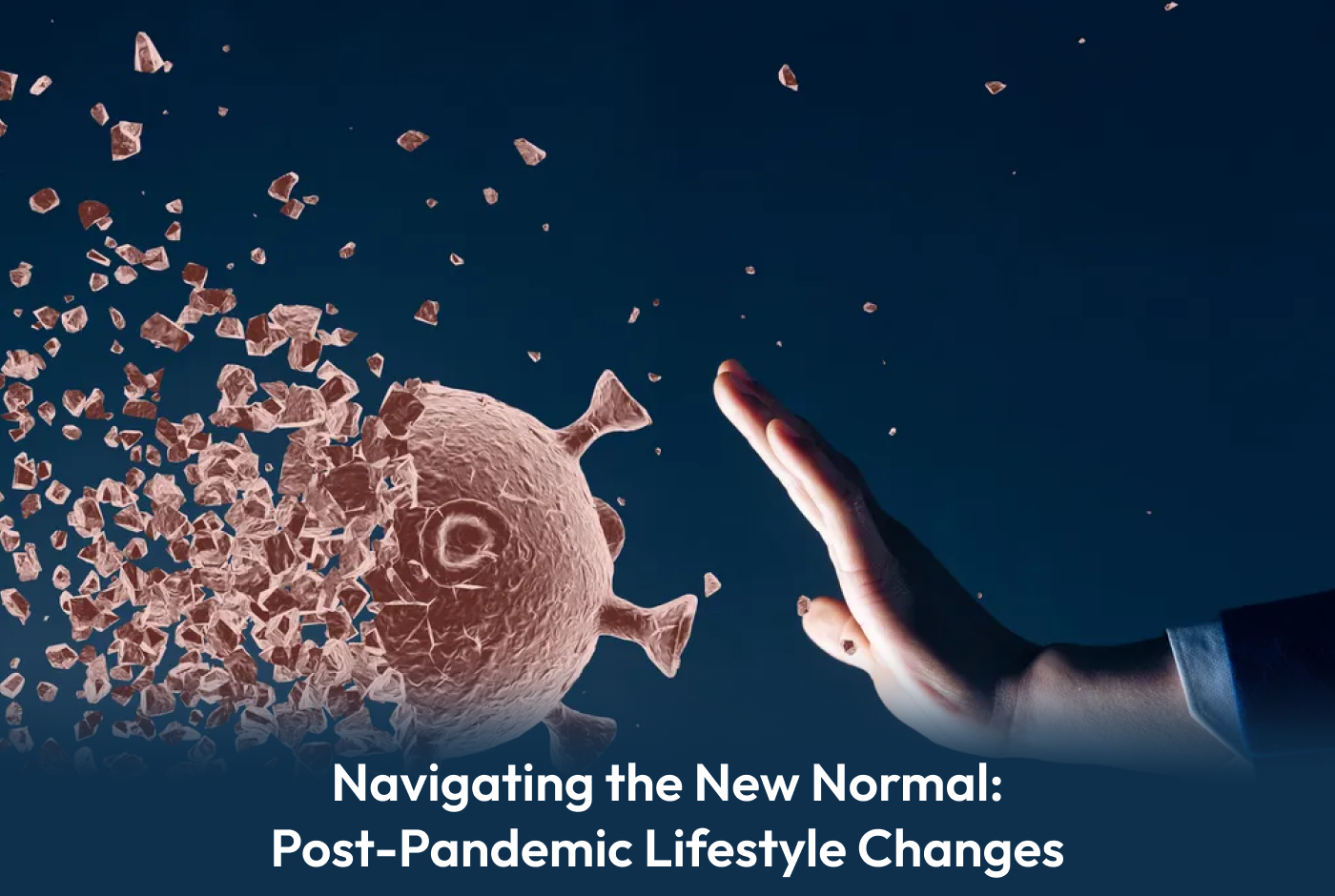
Navigating the New Normal: Post-Pandemic Lifestyle Changes
The world as we knew it has been transformed in the wake of the COVID-19 pandemic. It's not just a health crisis but a disruptor that has touched every facet of our lives, enforcing new habits, perspectives, and priorities. As we cautiously step into the post-pandemic era, it's crucial to reflect on these transformations and how they shape our 'new normal'. From embracing technological advancements to redefining work culture, our lifestyle has undergone a paradigm shift.
The Evolution of Work Culture
One of the most significant shifts we've seen is in the realm
of work
. The pandemic
catapulted us into a remote working experiment on a global scale, challenging the
traditional 9-to-5 office model. Companies and employees alike discovered the
feasibility and benefits of remote work, leading to a reevaluation of work-life balance.
The concept of 'work from anywhere' has gained traction, providing flexibility and
highlighting the importance of a harmonious blend between professional and personal
life. However, this shift also brings challenges such as maintaining productivity,
managing remote teams, and ensuring mental well-being. As we adapt to this change, it's
essential to establish clear boundaries, foster effective communication and create a
supportive work environment, whether at home or in hybrid settings.
Key objectives
2.Sustainability and Social Impact in NFTs
3.The Future Outlook
“She packed her seven versalia, put her initial into the belt and made herself on the way. When she reached the first hills of the Italic Mountains, she had a last view back on the skyline of her hometown Bookmarksgrove ” — Jean Smith
.jpg)
A New Focus on Health and Wellness
Another area where we see profound changes is in the domain of health and wellness . The pandemic has underscored the importance of physical health, mental well-being and the interconnectivity between the two. There's a growing emphasis on holistic health practices, including regular exercise, mindful eating and mental health awareness. People are more conscientious about their health choices, leading to a surge in fitness apps, online workout classes, and telemedicine services. The focus has also shifted to preventive healthcare, with increased attention to immunity-boosting diets and lifestyle choices. As we navigate this focus on health, it's crucial to find a sustainable and personalized approach that fits our individual needs and lifestyle.
The Transformation of Education The impact of the pandemic on education cannot be overstated. The abrupt shift to online learning posed significant challenges and learning curves for students, teachers and parents..jpg)
Redefining Consumer Behavior
Consumer behavior and shopping habits have also undergone a radical transformation. E-commerce has seen exponential growth, with more people turning to online platforms for their shopping needs, offering convenience and safety. This shift has not only changed the way we purchase goods but also how products are marketed and delivered. Local businesses and large corporations alike are adapting to this change, focusing on digital marketing strategies and enhancing their online presence. However, this shift also raises questions about the environmental impact of increased packaging and shipping, pushing for sustainable practices in e-commerce.
Social Connections in a Digital World
The pandemic has redefined our social
interactions, accelerating the adoption of digital
communication tools. Virtual meetings, online events and social media have become
integral in maintaining personal and professional connections. This digital shift has
brought people together across distances but it has also highlighted the importance of
real, physical interactions. As we navigate this digital landscape, finding a balance
between online and offline socializing is key. It's crucial to cultivate meaningful
relationships and ensure that technology enhances rather than replaces human
connections.
Travel and Leisure
Travel and leisure activities have been significantly impacted. There's been a growing preference for local travel and outdoor activities, as people seek safer, more sustainable and environmentally friendly options. This trend is not only reshaping the tourism industry but also encouraging a deeper appreciation of local cultures and nature. As international travel gradually resumes, there's a heightened focus on health safety measures and responsible tourism. Navigating this new travel reality involves embracing slower, more mindful travel experiences that prioritize safety and sustainability.
Mental Health Awareness
The pandemic has brought mental health to the forefront, breaking down long-standing stigmas and initiating conversations about emotional well-being. There's an increased recognition of the importance of mental health support in all aspects of life, including workplaces, schools and communities. Navigating this heightened awareness involves advocating for accessible mental health resources, promoting self-care and fostering an environment where seeking help is normalized and encouraged.
Conclusion
As we continue to adapt to the post-pandemic world, it's clear that many of these
lifestyle changes are here to stay. They have not only altered our daily lives but
also opened up new possibilities and perspectives. Embracing these changes requires
resilience, adaptability and a willingness to learn and grow. By acknowledging the
challenges and embracing the opportunities, we can navigate this new normal with
confidence and hope, building a future that's more flexible, mindful and inclusive.



